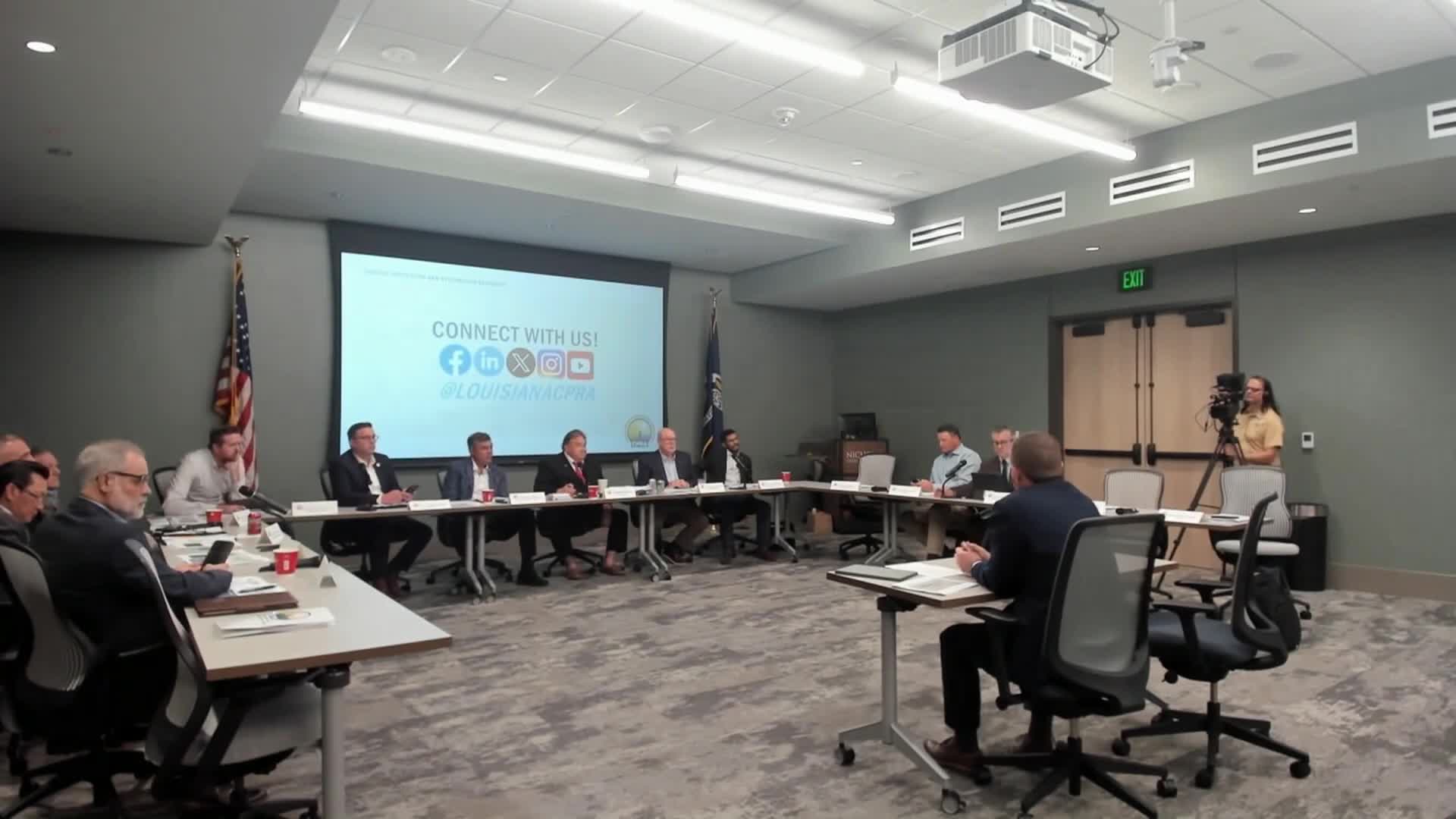Board questions CPRA after agency withdraws permit for major diversion project
October 20, 2025 | Coastal Protection and Restoration Authority Board, Boards & Commissions, Organizations, Executive, Louisiana
This article was created by AI summarizing key points discussed. AI makes mistakes, so for full details and context, please refer to the video of the full meeting. Please report any errors so we can fix them. Report an error »

Board members pressed CPRA staff for details after the agency said it had withdrawn a coastal-use permit for a major diversion project that had been under study.
At the meeting, staff told members the permit was withdrawn after an evaluation of funding liability and other programmatic and technical considerations. Board members asked whether the decision was solely financial. CPRA staff said financing was a principal factor but not the only one and that the agency had considered additional technical, environmental and policy factors. Staff also said the Corps of Engineers’ decisions about authorized flow for connected federal projects informed the agency’s conclusions.
Several board and legislative members asked how removing the diversion from active development would affect master-plan modeling and the benefits assigned to other projects. Members requested that CPRA present a follow-up analysis showing whether and how the cancellation changes how other projects perform in the master-plan system models.
Why it matters: Large river diversions and other sediment- and freshwater-reintroduction projects are integral to long-term coastal restoration strategies. Removing a diversion from active permitting can change modeled sediment and salinity outcomes and therefore the relative benefits of other planned projects.
What board asked CPRA to do: staff said they would incorporate the change into ongoing modeling and bring updates to the board and to the RPT (Regional Planning Team) meetings next January so planners and parish stakeholders could review any implications.
Attribution note: The transcript records the permit withdrawal and subsequent discussion but attributes some longer explanatory remarks to staff presenters using agency descriptions rather than a single named speaker; where a speaker was not explicitly identified in the record, this report paraphrases CPRA’s statements rather than attributing a direct quote to a specific individual.
At the meeting, staff told members the permit was withdrawn after an evaluation of funding liability and other programmatic and technical considerations. Board members asked whether the decision was solely financial. CPRA staff said financing was a principal factor but not the only one and that the agency had considered additional technical, environmental and policy factors. Staff also said the Corps of Engineers’ decisions about authorized flow for connected federal projects informed the agency’s conclusions.
Several board and legislative members asked how removing the diversion from active development would affect master-plan modeling and the benefits assigned to other projects. Members requested that CPRA present a follow-up analysis showing whether and how the cancellation changes how other projects perform in the master-plan system models.
Why it matters: Large river diversions and other sediment- and freshwater-reintroduction projects are integral to long-term coastal restoration strategies. Removing a diversion from active permitting can change modeled sediment and salinity outcomes and therefore the relative benefits of other planned projects.
What board asked CPRA to do: staff said they would incorporate the change into ongoing modeling and bring updates to the board and to the RPT (Regional Planning Team) meetings next January so planners and parish stakeholders could review any implications.
Attribution note: The transcript records the permit withdrawal and subsequent discussion but attributes some longer explanatory remarks to staff presenters using agency descriptions rather than a single named speaker; where a speaker was not explicitly identified in the record, this report paraphrases CPRA’s statements rather than attributing a direct quote to a specific individual.
View full meeting
This article is based on a recent meeting—watch the full video and explore the complete transcript for deeper insights into the discussion.
View full meeting
